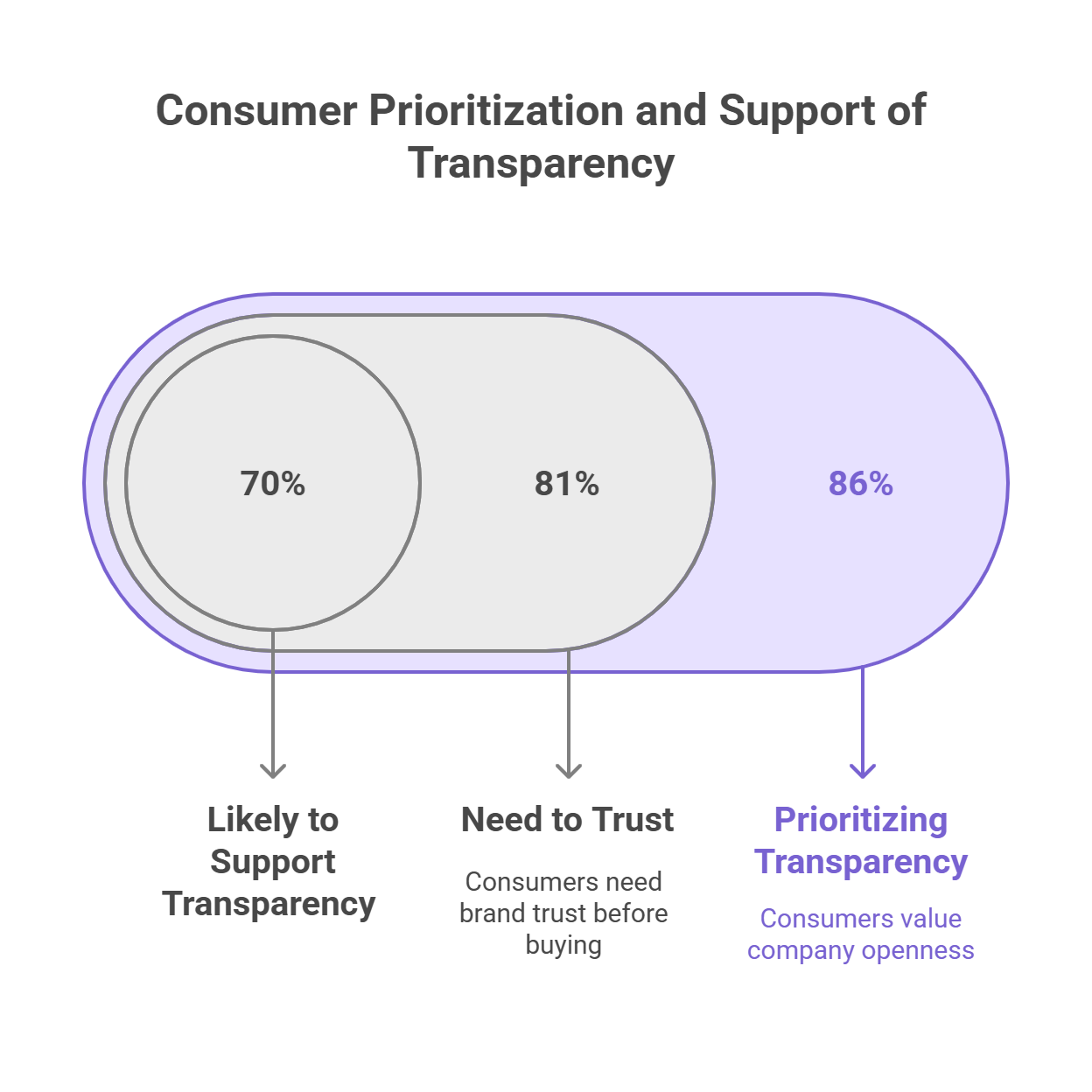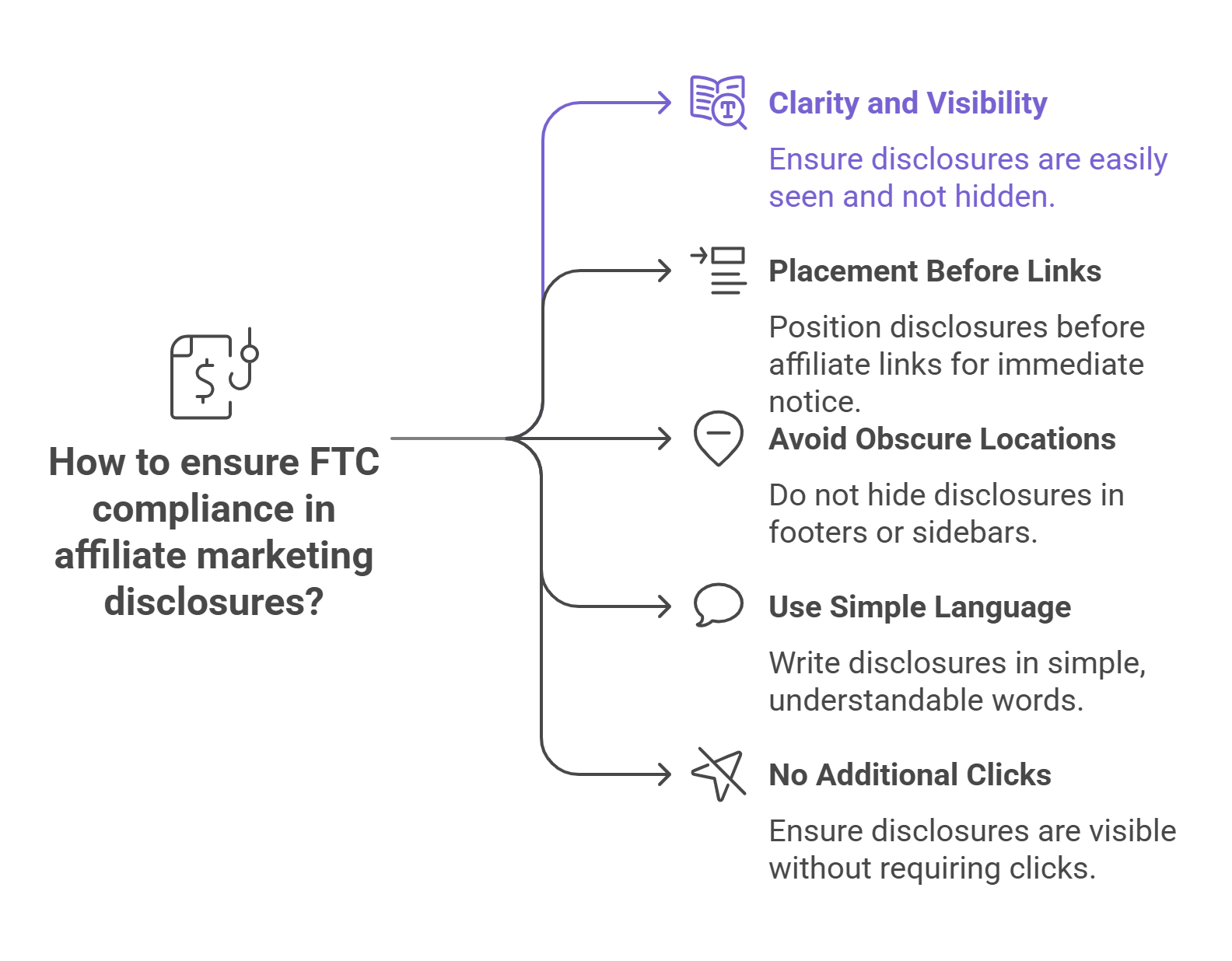Brands: Mastering Ethical Affiliate Marketing for Lasting Trust

Trust is the foundation of every successful affiliate program. For brands, ethical affiliate marketing means building transparency into every partnership and communication. When your brand is open and clear, customers feel safe, valued, and willing to stay loyal.
Evidence | Explanation |
|---|---|
94% of consumers like brands that are open about their marketing | Being open builds trust and keeps your business strong. |
As you design your affiliate program, ask yourself: are your partners communicating honestly about your products? Are you giving them the tools to promote your brand with clarity and authenticity?
Key Takeaways
Build trust by being open and honest about your affiliate links. Being clear helps your audience feel safe and important.
Give real recommendations. Share products you really like. This helps you make strong relationships with your audience.
Follow FTC rules for disclosures. Make sure your disclosures are easy to see and understand. This keeps your reputation safe and helps your readers trust you more.
Why Ethics Matter

Lasting Success
Sustainable affiliate programs are built on trust. When your brand sets ethical standards and enforces them consistently, customers notice and stay loyal. Many companies already see the payoff. For example, GreenLifeStyle required affiliates to use clear disclosure templates and reviewed their content regularly. This small step boosted customer confidence and improved campaign performance compared to non-disclosed promotions.
Key areas where brands must lead:
Disclosure compliance: Provide affiliates with easy templates and monitor campaigns to ensure rules are followed.
Product fit and quality: Approve only partners whose content aligns with your values and who promote your products responsibly.
Clear expectations: Set rules early so affiliates know how to represent your brand with honesty and respect.
By managing these areas, your brand protects its reputation while building partnerships that deliver long-term value.
Audience Loyalty
Customer loyalty is earned, not assumed. When your brand communicates with transparency, people feel valued and return again and again. They want to know you are not hiding anything, that you put honesty first in how your products are promoted.

These numbers show how much transparency matters to buyers. By holding affiliates to clear ethical standards, your brand reinforces trust at every touchpoint. Customers who believe in your openness are more likely to support your brand, recommend it to others, and remain loyal over time. That is how you build the kind of long-term relationships that drive sustainable growth.
Regulatory Compliance
Affiliate marketing is regulated in most markets. While the FTC (Federal Trade Commission) sets disclosure rules in the United States, similar requirements exist worldwide. Wherever your brand operates, you are responsible for ensuring partners promote your products transparently.
Examples of Key Regulations
United States → FTC requires clear and visible affiliate disclosures.
European Union → The Unfair Commercial Practices Directive enforces honest and transparent advertising.
United Kingdom → ASA and CMA require influencers and affiliates to label paid or affiliate content clearly.
Canada → Competition Bureau mandates disclosure of material connections.
Australia → ACCC requires truth-in-advertising practices for endorsements.
Asia → Countries like China and Singapore also require disclosure of sponsored content and commercial ties.
What Brands Should Do
Provide affiliates with standard disclosure templates for blogs, social media, and video.
Include compliance clauses in contracts to make disclosure mandatory.
Monitor content regularly to ensure affiliates follow the rules.
Offer training and resources so partners understand local requirements.
By taking the lead on compliance, your brand reduces legal risk, protects its reputation, and shows customers that transparency is non-negotiable.
The FTC Guidelines Example
Here is what the FTC expects your affiliates to do (and what your brand should require globally):

Data Privacy
Protecting customer data is both a legal requirement and a trust factor. Regulations such as the GDPR in Europe and the CCPA in California set strict rules on how personal information is collected and used. As a brand, you are responsible for ensuring your affiliates respect these rules when promoting your products.
To safeguard your business and your partners, you should:
Provide affiliates with clear privacy policy templates and instructions.
Require cookie consent mechanisms when affiliates reach users in regulated markets.
Include data protection clauses in every affiliate contract.
Audit campaigns that rely on tracking links, pixels, or cookies to confirm compliance.
Strong privacy standards help your brand reduce risk, avoid fines, and strengthen trust with customers who feel safe sharing their information.
Business Benefits
Revenue Protection
You work hard to make your business grow. You want to keep your money safe. Ethical affiliate marketing helps protect your earnings. Being open at every step lowers the chance of fraud. Many companies lose money from fake clicks and dishonest partners. Here are some facts you should know:
Affiliate fraud costs businesses billions of dollars each year.
In 2020, companies lost $1.4 billion from affiliate fraud.
About 17% of all traffic is fake, so you need good ways to spot it.
When you are open and honest, it is harder for fraud to happen. You show your audience and partners that you care about honesty. This helps people trust you and keeps your program strong. Your business stays steady and ready to grow.
Brand Reputation
Your reputation is very important. You want people to think your brand is honest and trustworthy. Ethical affiliate marketing helps your reputation by making honesty a top goal. When you talk clearly and tell the truth, you build trust with your audience. This trust makes people loyal and helps your business last.
Good ethics in affiliate marketing protect your reputation.
They help you make strong, long-lasting business friendships.
Being open helps everyone involved do better.
Honest talk makes your brand special.
When you focus on being open and honest, people respect your brand. Your reputation gets better, and your business becomes a trusted name in affiliate marketing.
Ethical Affiliate Marketing Checklist for Brands
Use this checklist to make sure your affiliate program builds trust, stays compliant, and delivers long-term growth.
Ensuring Clear Disclosures
Provide affiliates with disclosure templates for blogs, social posts, and video.
Review partner content regularly to confirm disclosures are visible and clear.
Monitor use of standard hashtags (#ad, #sponsored) on social media.
Maintaining Strong Communication
Schedule regular check-ins with affiliates to align on goals and expectations.
Share performance updates so affiliates know how they contribute to results.
Collect feedback from affiliates and adjust program rules when needed.
Vetting Affiliates
Choose affiliates whose content and audience align with your brand values.
Assess their commitment and stability before signing agreements.
Prioritize partners who create high-quality, trust-building content early in the customer journey.
Promoting Licensed and Compliant Partnerships
Work only with affiliates who follow legal and ethical standards.
Include compliance and disclosure rules in contracts.
Monitor affiliate activity regularly to prevent liability and reputational risk.
Encouraging Authentic Engagement
Provide affiliates with real product access so they can share genuine experiences.
Set guidelines that encourage transparency and discourage exaggerated claims.
Reward affiliates who consistently create authentic content that builds customer trust.
Building Relationship-Focused Programs
Offer recurring commissions that reward long-term customer value.
Partner with affiliates who prioritize authenticity over volume.
Support affiliates with training, resources, and ongoing collaboration.
Note: 93% of consumers rely on online reviews before making a purchase, and 90% buy within a week of their first search. Programs that prioritize authenticity and long-term relationships turn those moments into sustainable brand growth.
Ethical affiliate marketing is about more than compliance. It builds customer trust, strengthens partnerships, and supports long-term growth. Brands that lead with transparency and authenticity earn lasting loyalty.
Rolinko helps you put this into practice. With tools to monitor compliance, provide disclosure templates, and track partner performance, Rolinko makes it easier to scale your affiliate program while keeping ethics at the core.
See Also
The Importance of Fraud Prevention Tools for Marketers
How to Align Influencer Goals in Affiliate Marketing
Strategies to Broaden Your Affiliate Program for Success

